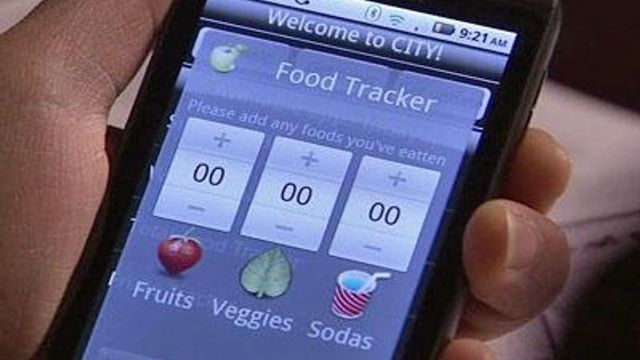Duke researchers: Can smart phones help with weight loss?
The New Year is always a good starting point for losing weight, and Duke researchers say special applications on smart phones may help young adults stick to their weight-loss goals.
Posted — UpdatedThe researchers are focusing on 18 to 35 year olds, because more than 60 percent of them in this country are overweight or obese. The strategy is to use their familiarity with smart phones to create a nutrition coach they can carry wherever they go.
Brad Hambric, 25, eats like an athlete. But now that he's hung up the cleats, he's not burning off the calories.
“So I kind of got stuck being big, and I need to just get back in shape,” Hambric said.
That's why he enrolled in the Duke study to see if special smart phone technology may help participants achieve and maintain a healthy weight, not from a diet, but a lifestyle.
Duke endocrinologist Dr. Bryan Batch, the daughter of WRAL Health Team’s Dr. Allen Mask, will compare three study groups with help from her colleagues. One will use a special smart phone program to prompt them with daily diet tips and collect information about what they're eating.
“It will ask you about any foods that you've eaten, so you can tell it fruits or veggies,” Batch said.
It also uses Bluetooth technology connecting a special scale with the phone.
“And when you step on the scale, it can record your weight,” Batch said.
A second study group will get weight loss coaching in person, while a control group receives only basic weight loss information.
“In participating in the study, people have a real unique opportunity to help us answer what is a critical question about weight loss in the young adult age group, because traditionally, these studies have been done in older individuals,” Batch said.
Hambric said he hopes he'll be in the smart phone group, which he believes will be a constant source of accountability.
“I think this is something, long term, I could commit myself to,” he said.
Researchers are enrolling participants now and have a goal of 360 people. It's a four-year study, but each individual will participate for two years. Participants will be randomly assigned to one of the three study groups in January.
Once the study is over, people in the control group will also be offered personal weight loss coaching.
If the results show the smart phone approach works, it could become a new way for nutritionists to help their clients live healthier lives.
For more information on Duke's CITY Study, visit www.dukecitystudy.org, e-mail citystudy@notes.duke.edu or call 681-CITY (681-2489).
• Credits
Copyright 2024 by Capitol Broadcasting Company. All rights reserved. This material may not be published, broadcast, rewritten or redistributed.





